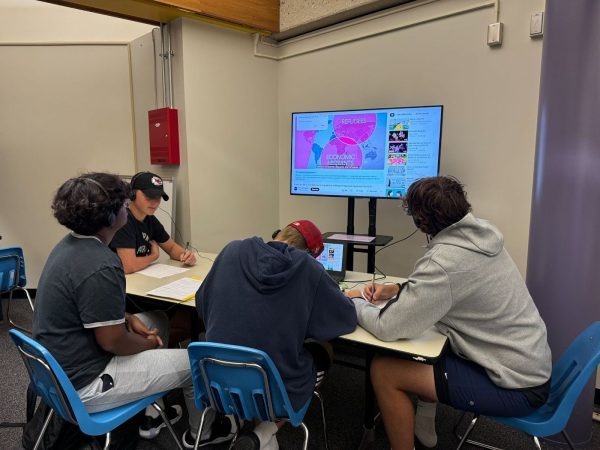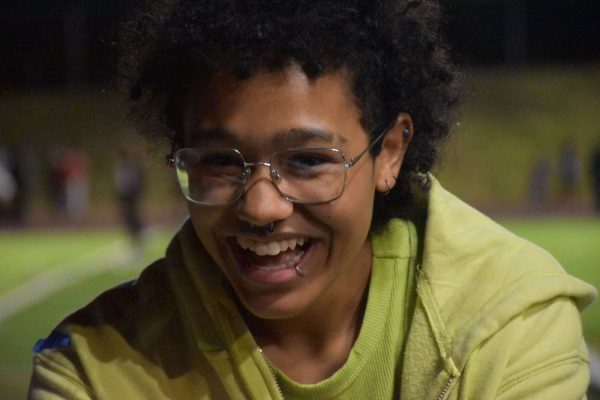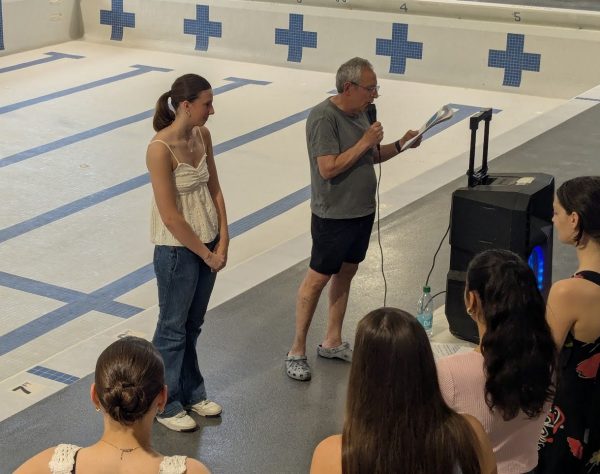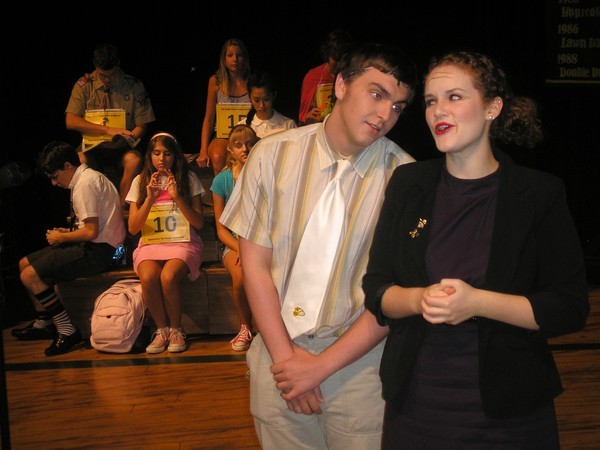Students, Staff Share Stories Around Drugs, Mental Health

In 2017, 70,237 drug overdose deaths occurred in the United States according to the U.S. Centers for Disease Control and Prevention. Sixty-eight percent of those deaths involved an opioid. “Drug awareness is important, so I think that message was something that needed to be discussed amongst your peers. I think mental health awareness was something that was talked about throughout and it’s something important as well,” said guidance counselor Chandra Brown.
On Oct. 24, students and staff gathered in the gymnasium to listen to yet another assembly drug prevention assembly. However, students quickly realized speaker Chris Herren had much more to offer than a drug recovery speech.
After an introductory video, key speaker, Chris Herren, an ex-NBA Basketball star and addict, stepped onto the floor and began telling his story.
“I actually already knew who this guy was because we watched his video in health class, but hearing him speak and seeing it live really hit me differently,” said senior Bernadette Doray.
In the duration of Herren’s speech, many topics relevant to teenage struggles were brought up including drug abuse, suicide, depression, self-harm, and other internal struggles.
In the past few days, the North community has been struggling with a death of one of their peers to suicide, so what was seemingly a run-of-the-mill drug prevention assembly, became one with greater meanings. Senior Itzel De Zamacona requested that the seniors have a moment of silence out of respect for the a student from the North community who reccently committed suicide.
“The part when he was talking about the girl who was inflicting self-harm on herself; that really hit close to home for me. Him talking about how depressed he was after doing drugs and not seeing his family and how he wanted to end his life; that was really hard to sit through. Him talking about depression and how it can take over your life was really hard for me to deal with and not just me, but the whole senior class due to recent events,” said Doray.
The messages were delivered through Herren’s life anecdotes, along with other people’s stories, including students in the audience.
“A lot [of the topics] about alcohol and stuff that can connect to my life and people that I care about [hit home for me]. I liked that it was very blunt. He wasn’t sugar coating it or telling us to ‘do this, don’t do that.’ What he said was just the truth. He was more effective than any other speakers in the past,” said junior Bryce Maier .
The approach of the speech combined with the little knowledge of what the assembly was, threw students off guard when hit with the heavy material.
“I wish we knew a little more about what it was going to be because all I knew walking in was that it was just going to be about drugs and why you shouldn’t do it. It was obviously a lot more than that,” said Doray.
As a result of the lack of knowledge, students walked in with a misguided attitude; some students weren’t paying attention, while others were laughing about a serious topic.
“I personally got very upset because it connected to my life. People were snickering or doing unrelated things like class assignments and not really paying attention. I understand why people would do that, but like he was saying, it was an important thing for a lot of people. A few people weren’t being respectful to him or to the other students who it meant something to. I don’t really fault them for that, but it was aggravating,” said Maier.
However, for the students who were affected by Herren’s story, there was little time to process the emotional trials they went through.
“I think [they should have] given all of us time to recover from that or talk about it. This whole topic hit really close to home for a lot of us and a lot of us were crying or had feelings we really needed to express, but we kind of went straight from the assembly to our next class,” said Doray.
Even though students were not given the adequate amount of time to process, especially with the recent loss of the student class, the counselors of Parkway North were ready to listen and help.
“We have resources readily available for students who come down and need support. We do have a duty to warn, so if a student says something to us that is going to [end up] being harmful to themselves or others, then we do have a duty to report it. Almost everything is said in confidence, unless you say something that’s going to harm yourself or someone else,” said guidance counselor Chandra Brown.
The duty to warn does generally scare teenagers especially from standing up and speaking out; however, when faced with a compromising situation like the ones brought up during the assembly, students face another internal struggle of whether or not to report.
“I know that [feeling like you are betraying your friends trust] is an internal struggle that a lot of our kids struggle with. Best way that I say it is if you have a friend who is doing [harmful] things and you don’t have the control or the knowledge on how to support them, then you have to think about their safety first. You have to take yourself out of the mindset of ‘my friend.’ When I think [outside of] that lens, then I do report it because my goal is to make sure you are still alive to remain my friend versus me trying to help you or me keeping it a secret and then having to explain to your parents or someone else or dealing with that guilt that I didn’t report it,” said Brown.
Another follow up to this assembly is STUCO’s Mental Health Awareness week that starts Nov. 11 and runs through Nov. 15.
“Last year, STUCO put on mental health week and I think we are doing it again this year. I think it’s very important because I don’t think it’s talked about enough. People don’t really understand depression. They see depression as one particular thing and if you don’t have it or look depressed then you’re not. People don’t understand that they go through things that they don’t tell other people. I think that’s really important for us to learn, because we need to help the people going through this,” said Doray.
In spite of the lack of knowledge on the issues brought to light and the unexpected weight of the topics, it still proved to be beneficial, and faculty members of Parkway hope that Herren’s many messages regarding teenage struggle stick with the students and faculty.
“I hope people don’t feel alone. We were all together and we saw how many people are affected by these things and you could see that it was an emotional thing, so if you are struggling, my hope is that people know you’re not alone,” said district counselor Erin Schulte. (This is her title on the website:Coordin Guid/Counsel/Charac Ed)

Hi! My name is Sara and this is my fourth year in Newspaper. I am one of the Editor-In-Chief's this year. I’m really into plays, musicals, and all that...



![There are many AI sites and apps available. “You don't [stop students from using AI] - you teach them how to use it,” social studies teacher Melody Barger said.](https://pnhnorsestar.com/wp-content/uploads/2025/01/AI-600x400.jpg)







